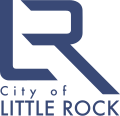| Dunbar Gifted/Talented Education International Studies Magnet Middle School | |
|---|---|
 | |
 Dunbar Magnet Middle School | |
| Location | |
 | |
1100 Wright Ave. , United States | |
| Coordinates | 34°43′57″N92°17′11″W / 34.7324°N 92.2863°W |
| Information | |
| Type | Public |
| Established | 1929 |
| School district | Little Rock School District |
| Principal | Eunice Thrasher |
| Teaching staff | 41.94 (FTE) [1] |
| Grades | 6-8 |
| Enrollment | 561 (2018-19) [1] |
| Student to teacher ratio | 13.38 [1] |
| Color(s) | |
| Mascot | Bobcats |
| Website | www |
Dunbar Junior and Senior High School and Junior College | |
Location in Arkansas | |
| Area | less than one acre |
| Built | August 17, 1929 |
| Architect | Wittenberg & Delony |
| Architectural style | Art Deco |
| Part of | Paul Laurence Dunbar School Neighborhood Historic District (ID13000789) |
| NRHP reference No. | 80000782 [2] |
| Significant dates | |
| Added to NRHP | 1980 |
| Designated CP | September 27, 2013 |
Dunbar Gifted & Talented Education International Studies Magnet Middle School is a magnet middle school for students in grades 6 through 8 located in Little Rock, Arkansas, United States. Dunbar Magnet Middle School is administered by the Little Rock School District. It is named for the nationally known African-American poet, Paul Laurence Dunbar.
Contents
- History
- Dunbar Junior and Senior High School and Junior College
- Curriculum
- Feeder schools
- Elementary schools
- High schools
- References
- Further reading
- External links
With construction supported by the Rosenwald Fund and a matching program, the school was built in 1929. For nearly three decades it provided comprehensive education for black students in Little Rock, under a segregated system. Its curriculum covered junior and senior high school classes, as well as some junior college. After 1955 the junior college was discontinued and, with construction of a new high school, this building was devoted to junior high school. Later it was adapted as a magnet middle school in the public school system.



